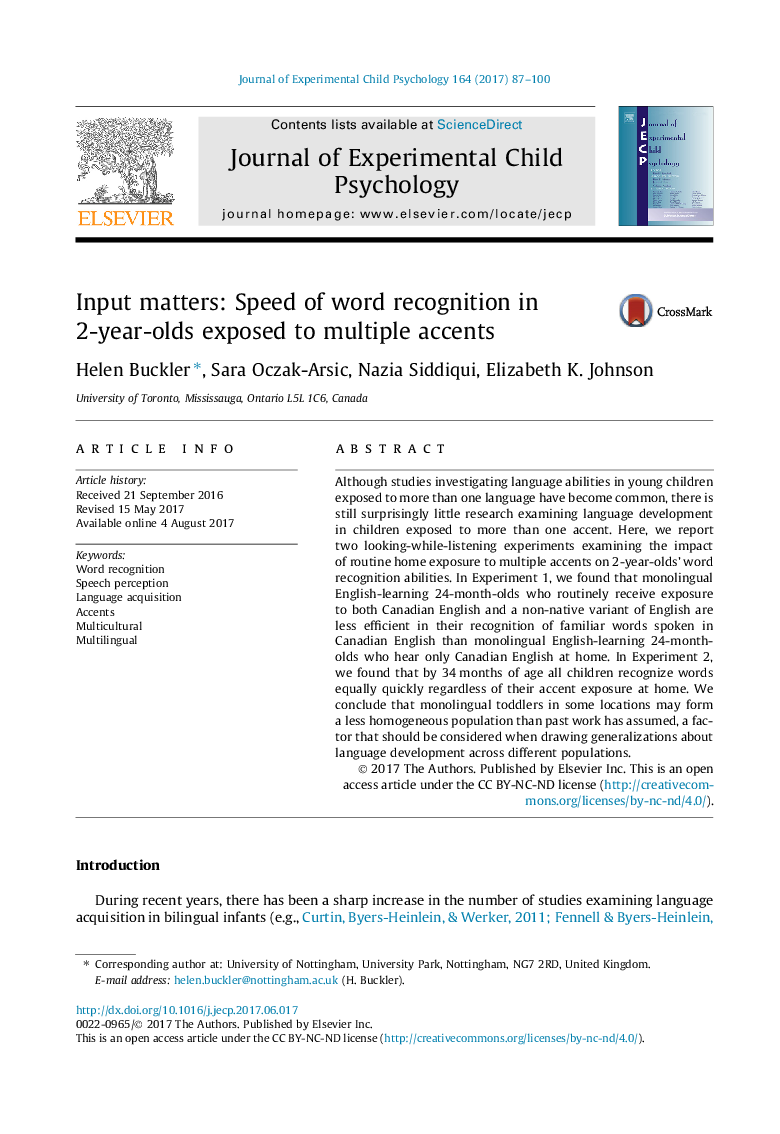| Article ID | Journal | Published Year | Pages | File Type |
|---|---|---|---|---|
| 5039947 | Journal of Experimental Child Psychology | 2017 | 14 Pages |
â¢Word recognition is less efficient in 24-month-olds exposed to non-native accentsâ¢32-month-olds recognize words equally rapidly, regardless of accent exposure.â¢Accented input may predict individual differences in speech processing tasks
Although studies investigating language abilities in young children exposed to more than one language have become common, there is still surprisingly little research examining language development in children exposed to more than one accent. Here, we report two looking-while-listening experiments examining the impact of routine home exposure to multiple accents on 2-year-olds' word recognition abilities. In Experiment 1, we found that monolingual English-learning 24-month-olds who routinely receive exposure to both Canadian English and a non-native variant of English are less efficient in their recognition of familiar words spoken in Canadian English than monolingual English-learning 24-month-olds who hear only Canadian English at home. In Experiment 2, we found that by 34Â months of age all children recognize words equally quickly regardless of their accent exposure at home. We conclude that monolingual toddlers in some locations may form a less homogeneous population than past work has assumed, a factor that should be considered when drawing generalizations about language development across different populations.
